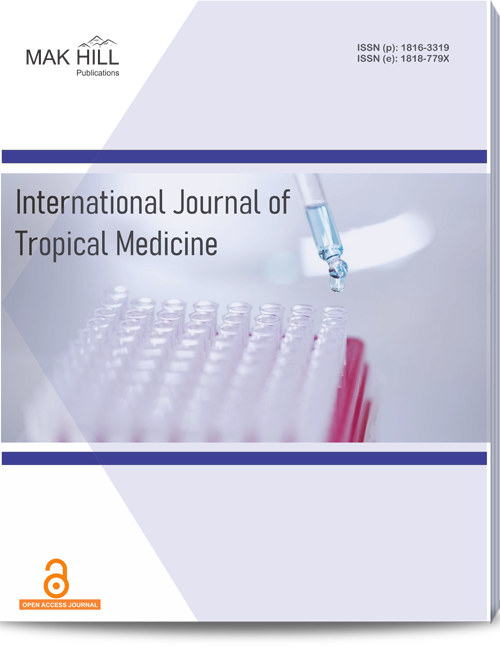
International Journal of Tropical Medicine
ISSN: Online 1818-779XISSN: Print 1816-3319
Abstract
Postoperative pain management is crucial for optimizing outcomes in cardiac surgery patients. Non‐opioid analgesic techniques have emerged as promising alternatives to opioid‐based pain management strategies. However, evidence regarding their efficacy in cardiac surgery patients remains limited. Aim of the study is to evaluate the efficacy of non‐opioid analgesic techniques in the context of cardiac surgery, elucidating their role in promoting enhanced recovery and optimizing patient outcomes. The present prospective observational study was done to evaluate the efficacy of non‐opioid analgesic techniques in 50 participants undergoing cardiac surgery. Pain relief scores were assessed using a visual analog scale at 6, 12, and 24 hours postoperatively. Additionally, postoperative opioid consumption, time to first ambulation, length of hospital stay, and incidence of postoperative complications were recorded. Participants receiving non‐opioid analgesics demonstrated significant improvements in pain relief scores compared to baseline (p < 0.05). Postoperative opioid consumption was reduced, and time to first ambulation was shortened in patients receiving non‐opioid analgesics. Furthermore, participants experienced a decreased length of hospital stay, and there was a low incidence of postoperative complications related to non‐opioid analgesic use. Non‐opioid analgesic techniques were effective in providing pain relief and enhancing recovery outcomes in cardiac surgery patients. These findings support the implementation of multimodal analgesia approaches to optimize postoperative pain management and improve patient outcomes in this population.
How to cite this article:
J. Suresh and Srinivasa Rao Janapati. Efficacy of Non‐Opioid Analgesic Techniques in Cardiac Surgery: An Observational Study.
DOI: https://doi.org/10.36478/10.59218/makijtm.2024.1.103.108
URL: https://www.makhillpublications.co/view-article/1816-3319/10.59218/makijtm.2024.1.103.108